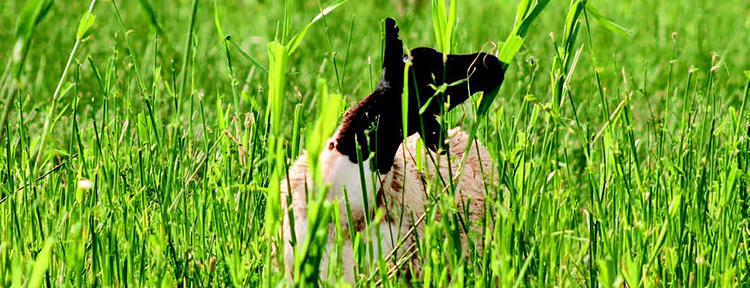The year is off to a good start for sheep farmers – despite falling sheep numbers
Although Australia’s sheep flock numbers are projected to reach a 116-year low in 2020, producers and livestock associations are confident that the numbers will bounce back thanks to the steady February rainfall and international demand for Australian lamb.
Although Australia’s sheep flock numbers are projected to reach a 116-year low in 2020, producers and livestock associations are confident that the numbers will bounce back thanks to the steady February rainfall and international demand for Australian lamb.
In the past three years, major sheep-grazing regions in Northern Victoria and NSW have received about 60% of the average rainfall. The drought conditions have caused many producers to sell off their core breeding stock and that’s why flock numbers were expected to drop by 7 million this year, down to 63 million.
Despite this, Meat and Livestock Australia has projected that the flock numbers will increase by 13% over the next three years in order to meet global demand for Australian lamb. However, for that to happen, there’d have to be a return to average rainfall to enable pasture growth.
With some drought-stricken regions in NSW and Northern Victoria receiving up to 130mm in the first half of February, livestock producers and associations have renewed confidence that we’re seeing relief from the dry spell and this will help restore stock numbers, especially for producers who have invested in drought-proofing their flocks.
Looking for a high yield agriculture investment that's not correlated to stock market volatility?
“Producers who have done the hard yards for the last three years and maintained their stock numbers are now well situated,” said Charles Knight, a Merino producer with a property north of Gunning who held on to 8,000 breeding ewes during the drought.
While there are still a lot of variables at play when it comes to weather and rainfall, farmers and livestock advisory bodies are optimistic that despite the current low numbers, Australia will remain a leading producer of lamb as there is such a low supply of sheep meat across the globe.
MLA’s Senior Market Analyst, Adam Cheetham, said that due to the decline in stock numbers and slaughter rates, as well as the massive international demand for Australian meat, prices for lamb and mutton are at record highs and are likely to remain high as the supply naturally declines further during the winter months.

“Given the prolonged drought, the surprise has been how prices have held up, with a lot of that coming with demand from our export markets,” Cheetham added.
Lamb exports from Australia increased 5% last year with exports to China soaring by 42%.
Australian Food and Farming is well-positioned to benefit from the recent rainfall. As other producers have scaled back their flocks during the drought, Australian Food and Farming has steadily increased its flock size to 20 000 heads of dry climate-loving Dorper sheep through regenerative farming practices. This flock number is set to increase even more with better rainfall on the horizon.
The fund is set to become Australia’s largest and lowest cost lamb producer with costs 30% lower than smaller producers. It’s on track to establish itself as the world’s first recognizable lamb meat brand.
To learn more about the investment opportunity with Australian Food & Farming, please click here to request the IM.
Reach Markets have been engaged by Australian Food & Farming to assist with private investor management and are the advisors assisting with the management of this offer. Reach Markets may receive fees depending on whether an offer is taken up by investors.
General Advice Warning
Any advice provided by Reach Markets including on its website and by its representatives is general advice only and does not consider your objectives, financial situation or needs, and you should consider whether it is appropriate for you. This might mean that you need to seek personal advice from a representative authorised to provide personal advice. If you are thinking about acquiring a financial product, you should consider our Financial Services Guide (FSG) including the Privacy Statement and any relevant Product Disclosure Statement or Prospectus (if one is available) to understand the features, risks and returns associated with the investment.
Please click here to read our full warning.




